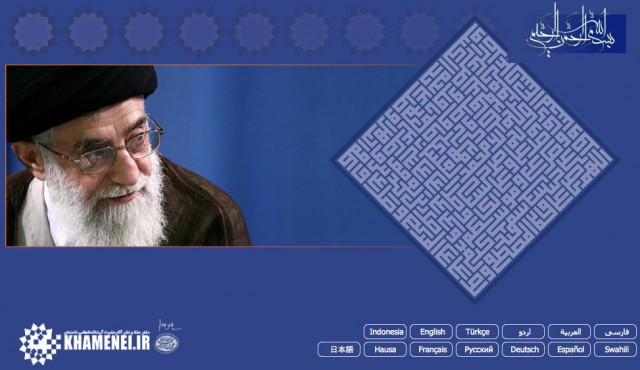
A federal judge in Washington, DC, has ruled that an entire country code Top-Level Domains (ccTLDs) cannot be transferred as part of a civil judgement to collect Iranian state assets in the wake of a terrorism attack "because they are not property subject to attachment under District of Columbia law."
In an eight-page memorandum opinion published on Monday, Judge Royce Lamberth agreed with the Internet Corporation for Assigned Names and Numbers (ICANN) and found that the ccTLDs of North Korea, Syria, and Iran could not be transferred to the plaintiffs, who had sued as part of a terrorism lawsuit dating back over a decade. Had the judge ruled in the other direction, the plaintiff could have seized all .KP, .SY and .IR domain names.
The case, formally known as Rubin et al v. Islamic Republic of Iran et al, goes back to a 1997 suicide bombing that took place in Jerusalem. Four Americans were injured in the attack, for which Hamas claimed responsibility. Given that Iran has supported and continues to support Hamas in its resistance against Israel, the plaintiffs sued the Islamic Republic, arguing that the Iranian government actually was liable. It’s unclear why exactly the plaintiffs also seek the Syrian and North Korean ccTLDs as part of this lawsuit.
To reach its conclusion, the judge relied on a Virginia Supreme Court case dating back to 2000 known as Network Solutions v. Umbro Int'l Inc., given that federal courts have not had to deal with this issue before.
"There, the court held that a domain could not be garnished by a judgment creditor under the relevant Virginia statute because it was 'inextricably bound' to the domain name services provided by the registry operator," Judge Lamberth wrote.
"The court further observed that allowing garnishment of a registry's services as part of garnishing a right to a domain name would mean that 'practically any service would be garnishable.' The court finds this reasoning persuasive as applied to District of Columbia attachment law as well. The ccTLDs exist only as they are made operational by the ccTLD managers that administer the registries of second level domain names within them and by the parties that cause the ccTLDs to be listed on the root zone file. A ccTLD, like a domain name, cannot be conceptualized apart from the services provided by these parties. The Court cannot order plaintiffs' insertion into this arrangement."
A twisted history
Because Iran did not respond to the initial lawsuit, the plaintiffs won their civil case by default and were awarded $109 million in damages in 2003—but the problem has been their attempt to collect that money. So far, the only money that the plaintiffs have been able to collect was to wrangle the 2005 sale of a $400,000 home in Lubbock, Texas, that was once owned by the former shah of Iran.
Despite the fact that it’s been over a decade since the original judgment came down, the plaintiffs have not stopped in their attempts to wrest whatever assets they believe Iran may have within the United States. Famously, they failed in their attempt to seize cultural artifacts held by Harvard University and Chicago’s Field Museum.
According to the court docket, ICANN is the final remaining garnishee or movant in the case that could have some link to alleged Iranian assets in the US—so the case should finally conclude in short order.
"We are pleased that the court ruled in our favor on the grounds that the ccTLDs are not property, subject to attachment," John Jeffrey, ICANN’s General Counsel and Secretary, said in a statement sent to Ars. "The court’s ruling demonstrates a technical understanding of the [Domain Name System], and the role of ccTLDs in the single, global, interoperable Internet."
reader comments
38